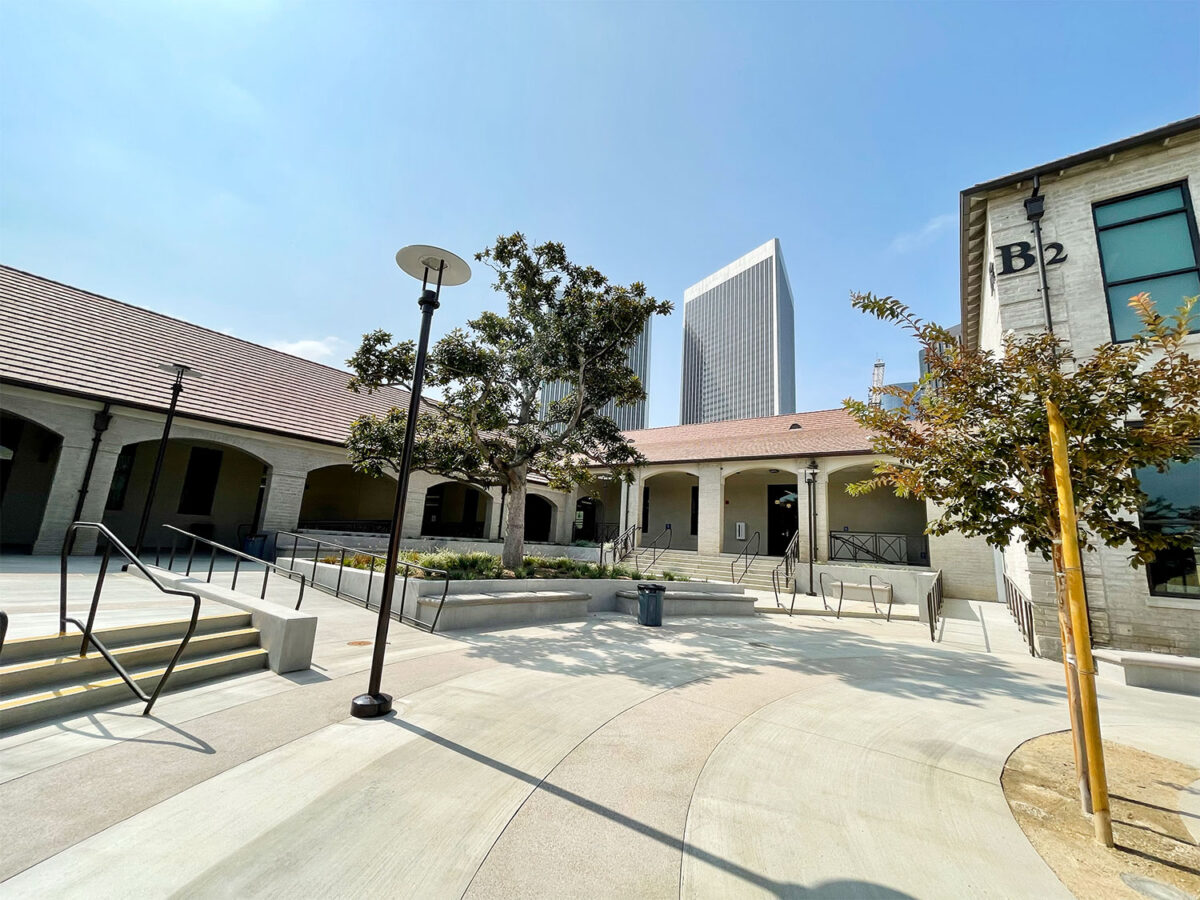The city of Beverly Hills has responded to a Notice of Violation from the California Department of Housing and Community Development (HCD) that its denial of a 19-story mixed-use development with affordable housing at 125-129 S. Linden Drive violated state housing laws.
On Aug. 22, the state notified the city that its decision to deny the project’s development had violated the Housing and Accountability Act and the Permit Streamlining Act. In June, city staff had deemed the application incomplete, which the project’s developer, Leo Pustilnikov, appealed. The appeal was later denied by the City Council.
In its Notice of Violation, the state wrote, “The City Council should reverse its decision and direct city staff to process the project without further delay.” They also explained in the notice that they required a response by Sept. 20.
On Sept. 19, the city of Beverly Hills responded in an 11-page letter written by Director of Community Development Michael Forbes, that explained the reason for its denial of the project. The city argues that the project does not have any vested rights pursuant to builder’s remedy, since the applicant’s Development Plan Review (DPR) application does not match its preliminary application (PA). Specifically, the most recent building plans include an additional 73-room hotel and restaurant, seven fewer affordable units and 35 fewer residential units in total.
According to the provisions of Government Code Section 65941.1 that were reiterated in the HCD’s notice, a project’s preliminary application retains vested rights unless the project’s overall residential units or square footage changes by 20% or more. “Other changes to the application falling outside these circumstances do not void vested rights under the preliminary application,” the code states.
The city’s letter argues that the lack of vesting can be established on the “narrower” grounds that the developer did not provide plans for nonresidential use in the PA.
“The applicant failed to identify any nonresidential uses in the PA, then added nonresidential uses in the DPR Application,” reads the letter. “Putting aside the question of whether or not Section 65941.1(c) could preserve vested rights if the PA had specified some nonresidential uses and the DPR Application merely altered them, the complete omission of any reference to nonresidential uses (in this case, a hotel and restaurant) means the PA was fatally defective when applied to the DPR Project because it did not include the information expressly required under 65941.1(a)(4). For this reason, the PA vested no rights in the DPR Project as a matter of law.”
The city’s letter goes on to explain that the developer had ample time to submit a new PA that included the hotel and restaurant but failed to do so. The city also responds to a statement by Governor Gavin Newsom that criticized Beverly Hills for denying the project. In a reported comment, the governor accused the city of trying to appease “NIMBYs,” which stands for “not in my backyard.”
According to the city, Newsom issued the quote before the city had even received the Notice of Violation or had a chance to respond. “Gov. Newsom’s critique that the city ‘caved to the demands of NIMBYs’ shows how little he knows about Beverly Hills,” reads the letter. “Just five days after denying the applicant’s appeal in this matter, the Beverly Hills City Council unanimously approved an eight-story density bonus project despite widespread neighborhood opposition. The city has consistently followed, and will continue to follow, all applicable state housing laws, and should not be reflexively lumped in with other cities that do not.”
Last week, Pustilnikov filed a lawsuit against the city, which is also being sued by a nonprofit group in connection with its actions regarding the Linden Drive development.
When asked to comment on the city’s response to the state’s Notice of Violation, Pustilnikov’s attorney Dave Rand told the Courier, “I didn’t see anything new. No points were made that the city hasn’t made before. It was just a repackaging of their prior arguments.”







